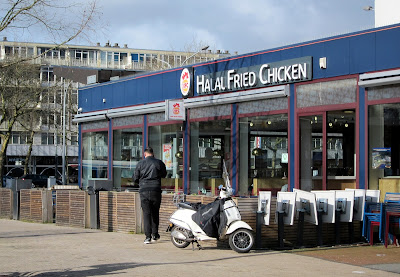Flavourful Saskatoon, June 8, 2020
Local News
The Saskatoon Farmers’ Market Co-operative is extending its hours and its operations. Starting June 14, they will be open on Sundays from 10 am-3 pm in addition to the Saturday markets. Sundays will also be the pick-up and delivery day for their newly reopened virtual market, which will be open for orders on Tuesdays at noon.
Empathy in Diversity
This has been a week of protest and outrage and the food world is certainly not exempt from ignoring and stigmatizing large segments of our population. Here are a few articles that stimulated my thinking around food and race.
The pandemic has shown us the shortcomings of our food system and a glimpse of the “invisible” people who supply us with food. “The people who risk their lives to feed us deserve better. . . . Recognizing our shared humanity is the first step. . . . Empathy, Mittal says, must be expressed across a continuum. ‘Starting within families, as we discover new foods and cook from scratch, as we plant food and take care of the earth. Working in school systems to dismantle the lies that have been fed to us about convenience—the convenience of using glyphosate to kill weeds, the convenience of frozen dinners, the convenience of clean-looking, wrapped-in-plastic meat,’ she says, ‘And standing in solidarity with workers who are asking for basic rights such as disinfecting wipes, immigration status, and a livable wage. Stand up for the rights of essential workers, and campaign for not only making them ‘essential workers,’ but essential human beings.”
Food has been a means of resistance, rebellion, and revolution for black people in America. “Enslaved Africans would braid seeds and rice into their hair. This wasn’t just a reminder of home; it was a tangible act of rebellion and resistance and a necessary means of survival in a world unknown to them.” The Black Panther Party provided free meals for all students in their communities.
In an article for Vittles newsletter, Melissa Thompson laments the absence of black recipe writers and restaurant reviewers. She questions why white chefs take it upon themselves to present their version of Jamaican chicken or jollof as authentic. She wants to know why African and Caribbean cuisines are bundled together with no differentiation between the different countries and islands. “Moving forward, I hope white and other people of colour ensure Black people are being represented across the spectrum — explicitly asking management, organisers and editors who else is being given a voice or a platform.”
Self-isolation and lockdown are exceptionally difficult without refrigeration and if there are limited local food stores. Volunteers are endeavouring to provide the Navajo Nation with nutrient-dense, shelf-stable meals. It’s not a long-term solution, but it is providing hope and a way forward.
Corn is one of our most important crops with over 1 billion tonnes produced in 2019, but it got its start a long, long time ago, thanks to the Mayans and other North American Indigenous peoples. “Maize was domesticated from teosinte, a wild grass growing in the lower reaches of the Balsas River Valley of Central Mexico, around 9,000 years ago. There is evidence maize was first cultivated in the Maya lowlands around 6,500 years ago, at about the same time that it appears along the Pacific coast of Mexico.”
Grow Your Own
Here are 5 vegetables that you can grow from scraps on your windowsill: lettuce, celery, potato, basil, and garlic. Start them off in water and plant them up in soil once they develop roots.
Flavourful Saskatoon is a weekly Monday feature. I also post articles about food that is good, clean and fair; travel; and books. You may also enjoy EcoFriendly Sask profiling Saskatchewan nature/environmental initiatives and events.
You can follow Wanderlust and Words on Facebook, Twitter, or by email (top right corner).








Comments